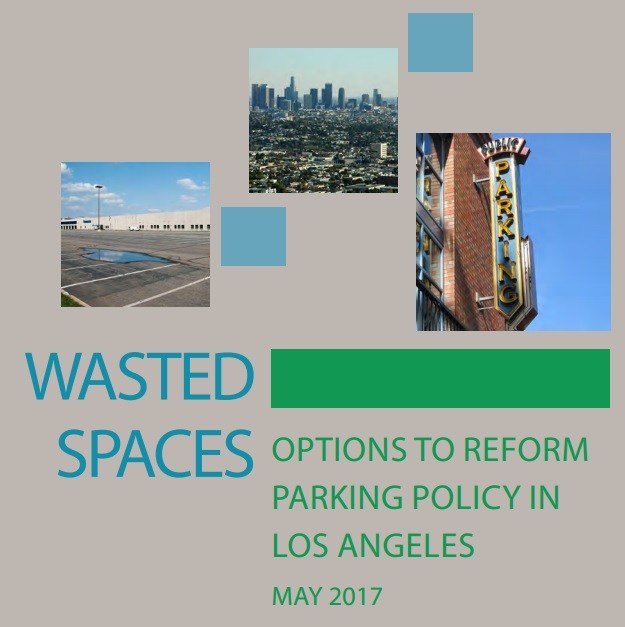The Council of Infill Builders hosted a half-day conference today on reforming L.A.'s parking policies. The conference was accompanied by the release of a new report, Wasted Spaces: Options to Reform Parking Policy in Los Angeles. The report recommends that Los Angeles:
- Eliminate, reduce, or right-size parking minimums, while letting the market determine actual parking needs
- Charge optimal prices for parking based on demand, such as through dynamic pricing on metered spots and better enforcement of existing policies, and spend any increased parking revenue on community-oriented goals of more efficient land use, improved equity, and reduced traffic
- Improve parking management, including transportation demand management options that promote multi-modal options and access to destinations
For more details on the report, see today's coverage at Urbanize.
Streetsblog attended the conference. Here are a handful of lessons from the dialogue there:
- LADOT General Manager Seleta Reynolds delivered the keynote talk. She began by emphasizing the trade-off between parking and housing, noting that a recent study showed how parking requirements result in excess unused spaces at affordable transit-oriented developments. Reynolds stressed that parking is not as critical as business leaders think it is, citing a study that found that businesses on complete streets outperformed competitors. Her keynote ended with speculation on the "robots are coming" future, where automated vehicles and other shared mobility modes are expected to further reduce the need for parking, resulting in challenges for re-purposing unneeded parking garage space.
- There was a healthy conflict between the California Community Foundation's Ann Sewill and the Council of Infill Builders' Mott Smith. Sewill made the case that simply eliminating or reducing parking requirements in transit-adjacent areas would have the unintended result of increasing displacement in these areas. Sewill stated that reducing parking is the most powerful tool for encouraging development; eliminating one parking space reduces the cost of development by an estimated 12 percent. Smith countered that reduced parking requirements will generate more development more cheaply, housing which in the long run will become affordable as it ages. Sewill and Smith acknowledged that solving L.A.'s housing crisis will need both intentional work toward affordability and the removal of restrictions to make development easier.
- Department of City Planning's Claire Bowin sketched out some of the city's plans for reforming parking. Bowin stressed that the city is moving away from a one-size-fits-all model. Though Bowin expects parking requirements to remain largely unchanged in single-family areas, she sees innovation in several community plans. The Downtown Community Plan doesn't need any parking. The Century-Aviation District Plan will allow redevelopment of parking structures without requiring replacement parking. The Expo Transit Plans will un-bundle parking from housing.






